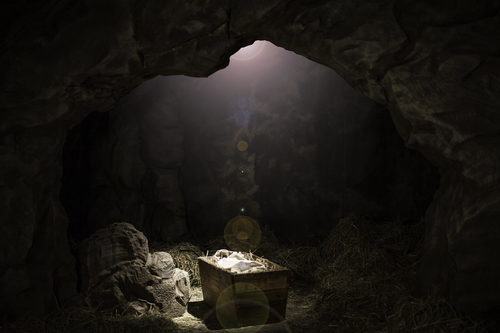He Will Be Great
Your year-end gift to Enduring Word helps millions globally. Click here to donate.
He will be great, and will be called the Son of the Highest; and the Lord God will give Him the throne of His father David. (Luke 1:32)
Nazareth was a small town 70 miles (113 km) north of Jerusalem. It was a tough place, a town known for its corruption and low morals. Yet in this dark setting a brilliant gem shined: a young woman named Mary, who was engaged to a man named Joseph. Mary was engaged, but not yet married; the Bible plainly says she was a virgin. One day, Mary had a spectacular angelic visitation. The angel spoke highly of Mary, but the focus of his message was not on Mary but on a Son to be named Jesus, who was unmistakably identified as the Messiah predicted by the Old Testament.

It’s not unusual for someone to buy a baby book when they first learn they will have a child. They often begin to record their thoughts and feelings during their time of pregnancy, writing their hopes and dreams for their unborn child. But no one, even the proudest parent, would ever write for their child what the angel said of Jesus before He was born: He will be great.
It was true: He would be great. Simply said, no one has influenced history more than Jesus Christ. Years ago, Fred Bock expressed this powerfully in a piece titled “One Solitary Life”:
Born in an obscure village, He was the child of a peasant woman. He worked in a carpenter shop until He was thirty years old, and then for three years He traveled around the county, stopping long enough to talk and to listen to people, and help where He could.
He never wrote a book, He never had a hit record, He never went to college, He never ran for public office, He never had a family or owned a house. He never did any of the things that usually accompany greatness. He had no credentials but Himself. But when He was only thirty-three years old, the tide of public opinion turned against Him, and His friends rejected Him. When He was arrested, very few wanted anything to do with Him. After the trial, He was executed by the State along with admitted thieves. Only because a generous friend offered his own cemetery plot was there any place to bury Him.
This all happened nineteen centuries ago, and yet today He is the leading figure of the human race, and the ultimate example of love. Now it is no exaggeration to say that all the armies that have ever marched, all the navies that have ever set sail, all the rulers that have ever ruled, all the kings that have ever reigned on this earth, all put together have not affected the life of man on earth like One Solitary Life.
The question remains: has Jesus affected your life? The angel said, He will be great – has the greatness of Jesus touched your life?
Click here for David’s commentary on Luke 1




